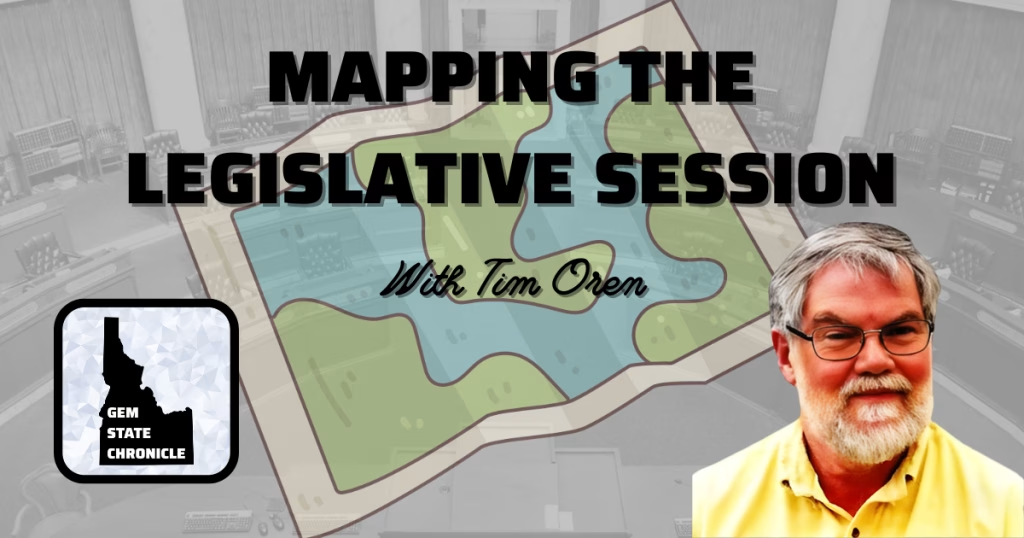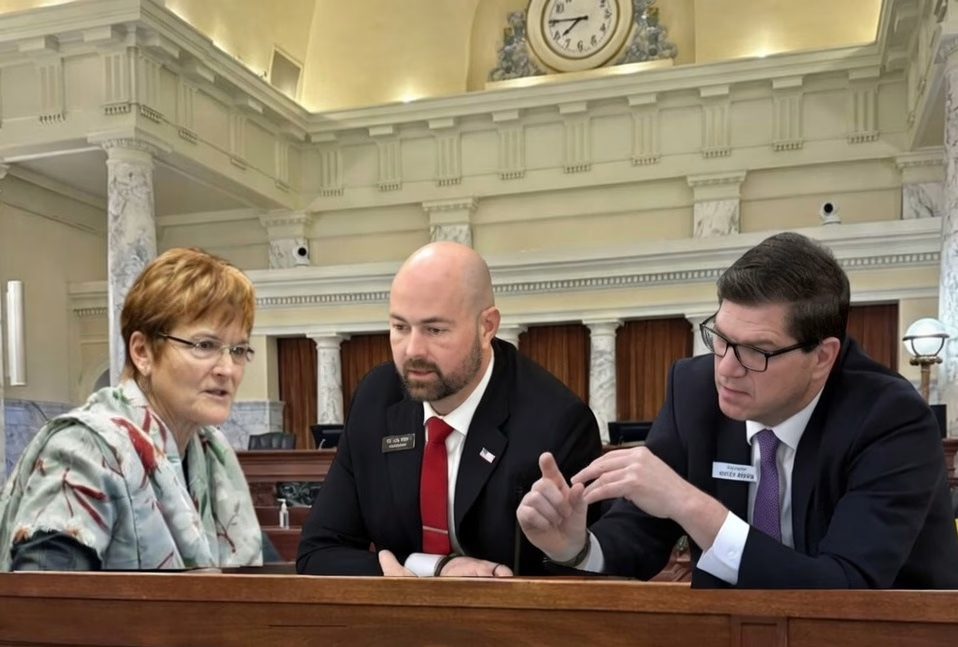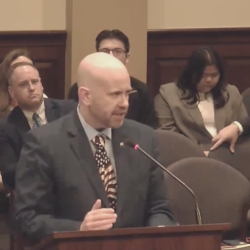“Amateurs study tactics, professionals study logistics.” That quote has been attributed to many people over the years, but no matter who said it first, it contains a fundamental truth we would be wise to learn. All the strategic and tactical genius in the world does a general no good if he can’t figure out how to move his army from Point A to Point B, keeping them supplied, clean, and fed along the way.
Many people in politics, both newcomers and veterans, believe that good ideas are all you need. “We just need to pass common-sense laws.” “We just need to cut the budget.” “We just need more courage to do what’s right.” These positions aren’t wrong, but they are insufficient for actually accomplishing anything in government.
As you know, enacting legislation means convincing at least 36 representatives, 18 senators, and one governor to support your bill. It also means persuading two committee chairs—one in the House and one in the Senate—to grant your bill a hearing. That’s a tough gauntlet to run, requiring not only hard work and a deep understanding of the political process but also a willingness to compromise and the wisdom to discern what to give up in order to secure what really matters.
Sure, it would be easier to just have a conservative king who could implement all our terrific ideas with the stroke of a pen. But America rejected monarchy nearly 250 years ago and created a republic instead. That system ensures laws have the consent of the governed, at least in theory.
Adapting the opening quote to politics, I’d paraphrase it this way: “Amateurs study ideology, professionals study process.” Finding potential lawmakers with the right ideology is easy. Finding those who can navigate the process and turn that ideology into policy is much harder.
Since I started the newsletter that became the Gem State Chronicle in January 2022, I’ve spent less and less time on ideology and more on process. This has led some to mistakenly believe that I’ve moved away from my conservative principles, which couldn’t be farther from the truth. My experience in the political system has taught me that if we want to implement policies that keep us prosperous and free, we must educate ourselves on how to manage the process.
I often use House Bill 93 as an example of successfully navigating the process. The first major attempt to bring school choice to Idaho came in the form of an education savings account. Senate Bill 1038 failed in 2023, so something different was needed. Sen. Ben Adams floated a tax credit at the end of that session, but it never got a hearing.
In 2024, Rep. Wendy Horman sponsored a new tax credit, developed with a broad spectrum of stakeholders over many months. Even though it failed in the House Revenue & Taxation Committee, it laid the foundation for new legislation in 2025. With many of the 2024 “nay” votes losing in the primary, it became clear that Idaho voters wanted some form of money following the child.
Rep. Horman and Sen. Lori Den Hartog spent the summer and autumn of 2024 working with legislative leadership and Gov. Brad Little’s office. Lobbyists and experts helped ensure the language of the new bill was acceptable to enough people to pass the Legislature and secure the governor’s signature. Even President Donald Trump endorsed the bill, putting pressure on the governor to support it.
H93 became law thanks to the hard work of many different people who understood the logistics of turning a good idea into policy.
In addition to the political skills necessary to carry a bill through the process, another essential skill is ensuring the bill actually does what it is meant to do. Bills pass through many hands along the way. What begins as an idea becomes a draft produced by staff in the Legislative Services Office, who work with legislators to craft the right language. Lawmakers often ask the Attorney General’s office to review drafts to ensure the language is constitutional and legally defensible.
House Bill 96 from the 2025 session is a good example. It was designed to prevent government entities from flying ideological or other non-official flags on public property. Boise Mayor Lauren McLean, who has flown the LGBTQ+ flag over City Hall for years, immediately defied the law. There is debate over whether H96 is enforceable, but even so, McLean pushed through a City Council resolution declaring the pride flag “an official city flag” of Boise, which appears to exploit a loophole in the law.
Lawmakers are preparing legislation to address this defiance in the next session, but this shows how the consequences of a bill aren’t always clear until after it becomes law.
Anytime developers create a new application or game, they typically put them through a rigorous process to discover any loopholes that could cause unexpected behavior or even program crashes. This quality assurance process requires engineers to test everything an end user might do, even things that seem implausible. And even then, they can still miss something.
There’s a nerdy old joke about the process that goes like this:
A QA engineer walks into a bar. He orders a beer. Orders 0 beers. Orders 99999999999 beers. Orders a lizard. Orders -1 beers. Orders a ueicbksjdhd.
First real customer walks in and asks where the bathroom is. The bar bursts into flames, killing everyone.
Predicting how new laws might be exploited is an important part of a legislator’s toolkit. That’s why I asked so many questions about House Bill 406 last year, which created mandatory minimum sentences for fentanyl trafficking and possession. We must evaluate not only the stated purpose of a law but also every potential unintended consequence—and then carefully observe how it is implemented once passed.
Politics is more than giving speeches, writing articles, and posting on social media. It’s about turning our ideas and principles into policies that protect our freedom and prosperity. It’s not a binary choice between ideology and process—politics requires both. A progressive who is effective can be a danger to our liberties, while a conservative who is ineffective accomplishes little by merely holding office. Voting matters, of course, but legislating is far more than casting votes. We need leaders who can both stand on principle and get good things done.
Having the right principles and good ideas is only the beginning of politics, not the end. We need leaders who know how to turn good ideas into reality, and we must educate ourselves as well. The purpose of the Gem State Chronicle is to give you the tools you need to be an engaged citizen—tools drawn from my own education and research into how we can not only elect good conservatives but also help them translate their ideas into policy.
Gem State Chronicle is a reader-supported publication. To receive new posts and support my work, consider becoming a free or paid subscriber.
About Brian Almon
Brian Almon is the Editor of the Gem State Chronicle. He also serves as Chairman of the District 14 Republican Party and is a trustee of the Eagle Public Library Board. He lives with his wife and five children in Eagle.













